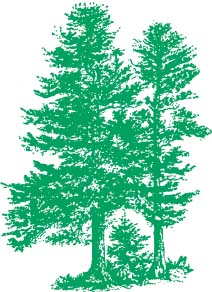Ancient Civilisations May Have Given Us a Carbon Boost
New Sceintist
19 February 2009
by Fred Pearce
Can we thank past civilisations for the way tropical rainforests are soaking up our carbon pollution? A new analysis of tree growth and death in 79 plots across tropical Africa finds that every hectare is soaking up an average 0.6 tonnes of carbon from the air per year.
The findings of the international study, reported by Simon Lewis of the University of Leeds, UK, mirror past discoveries of the huge carbon-absorbing ability of the Amazon rainforest. Together, they confirm estimates from atmospheric chemists that natural tropical forests absorb about a fifth of our carbon emissions.
The researchers followed the growth of some 250,000 trees over 40 years. After allowing for trees that died, they estimate that African tropical forests are absorbing a total of 340 million tonnes of carbon a year.
This huge "carbon sink" in the tropical rainforests roughly counterbalances releases from mankind's destruction of tropical rainforests by burning, logging and clearing. Though, as IPCC scientist Chris Field of Stanford University warned at the American Association for the Advancement of Science conference in Chicago at the weekend, they could soon be swamped by carbon releases from raging fires in the forests as a result of climate change.
But what caused the sink? Mature forests should be carbon-neutral in theory, releasing as much as they absorb. Helene Muller-Landau of the Smithsonian Tropical Research Institute in Panama, suggests the forests could still be regrowing after partial destruction by past civilisations, such as pre-Columbian Amazon cities and ancient African iron-making societies. They are, she says, "far from being pristine wildernesses."
But Lewis thinks the similar results from both forests suggest a global influence - "probably the fertilising effect of the rising levels of carbon dioxide in the atmosphere".
Journal reference: Nature (vol 457, p 1003)
Nature 457, 933 (19 February 2009) | doi:10.1038/7232933a; Published online 18 February 2009
“Widespread monitoring of African forests gives clues to carbon storage” - by Simon Lewis
